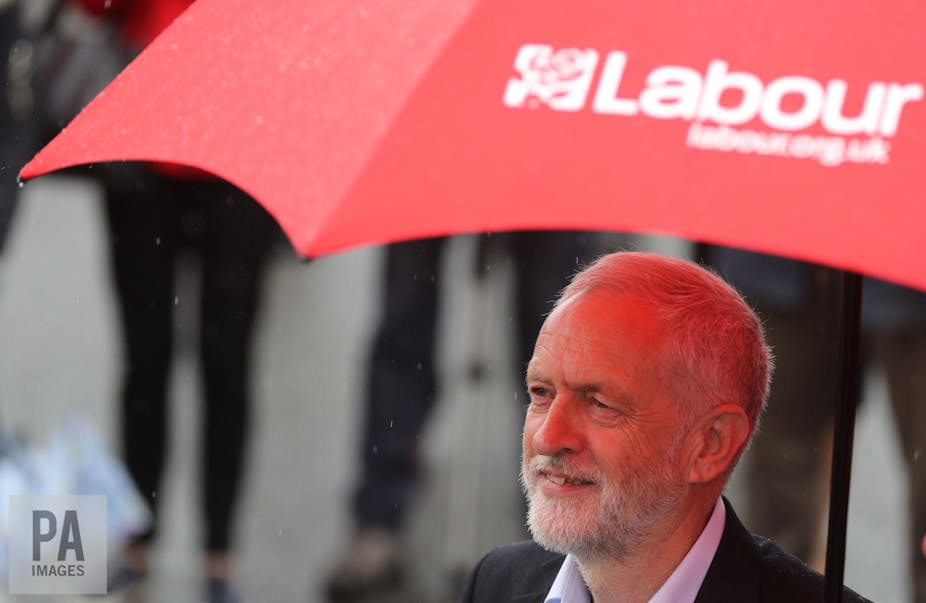Suddenly, the Labour party is in a much stronger position than even many of Jeremy Corbyn’s supporters believed possible. Only a few weeks ago, Unite leader Len McCluskey said if the party ended up with just 200 seats that was good enough for him. Others argued that if Labour only slightly improved on the 30.4% of the vote it received in 2015 Corbyn should remain leader. It wasn’t just the media predicting disaster for the party when Theresa May called an election.
But having added a remarkable 9.5% to its 2015 share and with 30 more MPs, what should Labour do now? For while Corbyn campaigned unexpectedly well, Labour remains 64 seats short of a House of Commons majority.
Some Corbyn supporters believe Jeremy should keep on being Jeremy. Had the campaign lasted a few more weeks, John McDonnell claims, Labour would have won. To such Corbynite ultras one more heave is all that is necessary. And the likes of commentator Paul Mason remain convinced Labour has to be transformed from a conventional social democratic electoral organisation into a radical social movement. That means the “Blairite” saboteurs should be chased out of the party while Momentum, the body set up to advance Corbynism, needs to redouble its efforts to agitate for internal change.
Not much has actually changed organisationally under Corbyn. The threatened de-selection of disloyal MPs never happened, meaning the parliamentary Labour party (PLP) remains very much the same group that tried to unseat Corbyn in 2016. Moreover, for the ultras, Labour’s manifesto – however transformative Corbyn said it was – was a necessary compromise, especially on the renewal of Trident. They will be keen to revisit such matters.
Mirroring this perspective, some of Corbyn’s critics in the PLP remain implacably opposed to his leadership. Labour MP Chris Leslie has stated that Labour missed an “open goal” against May, arguing the party should have beaten what turned out to be a poor opponent. This is a view other MPs hold but are currently unwilling to express in public. But, like Leslie, they consider that many voters still regard Corbyn as lacking credibility as a potential prime minister; and many MPs remain sceptical of the wisdom of turning Labour back into a “tax and spend” party. If Labour is to ever win office they believe Corbynism has, at the very least, to be pinned back.
Toeing the line
Some of Leslie’s colleagues responded to the election result in a different way. They praised Corbyn’s unexpected ability to mobilise younger voters and conceded they underestimated his campaigning skills. Having eaten a slice of humble pie, former shadow business secretary Chuka Umunna, in particular, has said he is now willing to serve in a Corbyn shadow cabinet.
Corbyn’s ultras remain uneasy about allowing any “Blairites” back into the fold. It is certainly unlikely that Umunna will have been converted to Corbynism: he may have decided that having tried to challenge Corbyn from without he might do better from within. But if that brings a risk, the likes of Umunna, Yvette Cooper and others will bring competence to the Corbyn team, something that has been notably missing, and which might prove the difference between another glorious defeat and actual victory.

Labour will certainly need seasoned parliamentarians on its front bench in the years ahead now that, thanks to the election, the fate of Brexit is back in the hands of the House of Commons. The next shadow cabinet reshuffle will provide an important insight into Corbyn’s thinking about his party’s future direction.
Now for the difficult bit
If peace does break out it will however be likely to be an uneasy one. The first test will come in the autumn, when the Labour conference debates the “McDonnell amendment”. This proposes to reduce the percentage of MPs and MEPs required to nominate a candidate for leader, from its current 15% to 5%. Should it be passed, the amendment makes it much more likely that when Corbyn stands down – unlikely though that might seem just now – someone who shares his radicalism will find their way on the ballot and so likely be elected leader by what remains a very left-wing membership. The McDonnell amendment seeks to entrench Corbynism, which is why so many – and not just MPs – oppose it.
It is unlikely that Labour’s unexpectedly good performance in the 2017 election will create the basis for a perfect or permanent peace. The party contains fundamentally different visions of how to do politics for that to be possible. That, however, is not exactly news. Previous Labour leaders have kept the party’s inherent ideological divisions in check and won power. It is up to Corbyn to show that he is such a leader. Addressing thousands of cheering supporters during a campaign nobody expects you to win is the easy part of being a leader. The hard part starts now.

